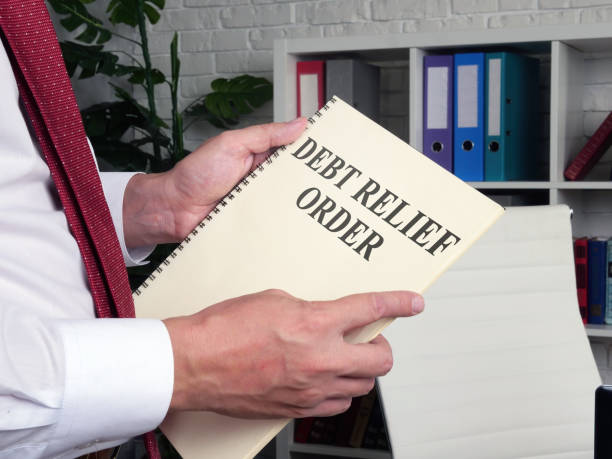
A Debt Relief Order: A Way Out Of Financial Problems
If you’re struggling with debt, you might be considering a debt relief order (DRO). This is a type of insolvency procedure that can help you if you have relatively low assets and income. In this article, we’ll explain what a DRO is and how it could help you get out of debt. how to apply,
What is a Debt Relief Order?
If you’re struggling with debt, you may have heard of a Debt Relief Order (DRO). This is a formal way of dealing with your debts if you can’t afford to pay them back. It’s a legal process that’s overseen by the government, and it can give you some breathing space from your creditors.
A DRO can be a good option if you’re on a low income and don’t have many assets. It’s worth considering if other debt solutions, such as an IVA or bankruptcy, aren’t right for you.
To get a DRO, you must:
– Owe less than £20,000
– Have little spare income each month after paying essential bills
– Have few assets (e.g. your home)
– Not have been subject to a DRO in the last six years
If you meet these criteria, then you can apply for a DRO through an authorised insolvency practitioner (IP). Once the IP has received your application and payment, they’ll send it to the court for approval. If the court approves your DRO, it’ll be advertised for 21 days to give your creditors time to object. After this period, DRO is the best option for you.
How to Apply for a Debt Relief Order
If you’re struggling with debt, a Debt Relief Order (DRO) could be a way out. This is a formal debt solution that can Write Off Debt.
To apply for a DRO, you must:
- Be unable to pay your debts
- Have debts of less than £20,000
- Have assets of less than £1,000
- Not have been subject to a DRO in the last 6 years
- Not own your home
- Live in England or Wales
- Have lived or worked in England or Wales for the last 3 years
- Not have been declared bankrupt in the last 6 years
- Get advice from an authorised debt adviser
- Make a reasonable attempt to repay your debts
If you meet all of the criteria above, you can apply for a DRO through an authorised debt adviser or through the government’s Insolvency Service website. Once you’ve made your application, an official receiver will review it and decide whether or not to approve it. If your DRO is approved, it will be advertised for 21 days to give your creditors a chance to object. After 21 days,
What are the Eligibility Requirements for a Debt Relief Order?
If you’re struggling with debt, you may be wondering if a Debt Relief Order (DRO) is right for you. DROs are a type of insolvency, which means they can help you clear your debts if you’re unable to pay them back.
There are certain eligibility requirements for a DRO, which we’ll outline below. If you think a DRO could be right for you, we recommend speaking to a qualified insolvency practitioner who can give you more information and help you through the process.
To be eligible for a DRO, you must:
– Owe less than £20,000
– Have few or no assets
– Have a regular income (this could be from benefits)
– Have lived or had property in England or Wales in the last 3 years
– Not have been subject to a DRO in the last 6 years
What are the Pros and Cons of a Debt Relief Order?
Debt relief orders (DROs) are a type of insolvency that can help people who live in England or Wales and have low incomes and few assets pay their debts.
The main advantage of a DRO is that it can write off most of your debts, which gives you a fresh start. Once the order is made, your creditors cannot take any further action against you to recover the money you owe them.
However, there are some disadvantages to consider before applying for a DRO. For example, it will be noted on your credit file for six years, which could make it difficult to get credit in the future. In addition, you may be required to give up some of your possessions (known as “surrendering assets”), and you may be barred from running a business or becoming a company director for 12 months.
If you’re struggling with debt, a DRO could be worth considering as a way out. However, make sure you understand the pros and cons before making a decision.
How does a Debt Relief Order Affect Your Credit Score?
If you’re considering a Debt Relief Order (DRO), you may be wondering how it will affect your credit score. The simple answer is that it will likely have a negative impact on your score. However, it’s important to keep in mind that a DRO is designed to help people who are in severe financial distress and are unable to repay their debts. If you’re struggling to make ends meet, a DRO may be the best option for you.
If you think a DRO might be right for you, A DRO can stay on your credit file for up to six years, which means it will have a significant impact on your credit score. During that time, it will be difficult to get new lines of credit or loans. However, once the DRO is removed from your credit file, you should see your score gradually improve.
If you’re considering a DRO, it’s important to speak with a qualified financial professional to ensure that it’s the best option for your unique situation.
Alternatives to a Debt Relief Order
If you’re struggling with debt, a Debt Relief Order (DRO) may seem like the perfect solution. After all, it can help you get out of debt and start fresh. But there are other options to consider before you decide whether a DRO is right for you. Whatever option you choose, make sure you do your research and talk to a financial advisor to figure out what is best for your situation.





